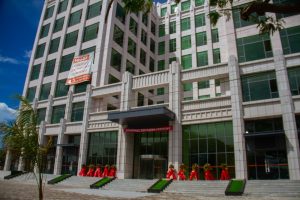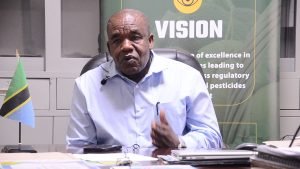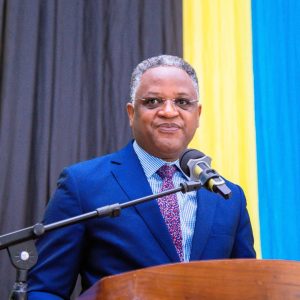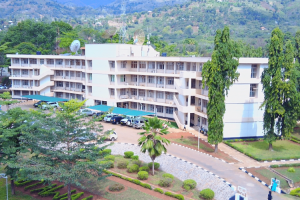Mantra Tanzania Confident Uranium Mining To Transform Tanzania’s Economy
By Special Correspondent
TANZANIA holds a global potential for uranium exploration and mining due to its favourable geology, the prestigious economic opportunity which is projected to bring about positive impact into the country’s economy in the near future.
Giving an interview to this publication , the Sustainability Manager at Mantra Tanzania, Majani Wambura expressed that the country has been endowed with many uranium-bearing deposits, including the Mkuju River Project, one of the world’s largest undeveloped uranium deposits.
“As one of the largest sources of the valuable mineral, the country’s foray into uranium mining can greatly influence Tanzania’s economy, and the continent as a whole,” he observed.
He added that what makes Tanzania a favourable region for uranium exploration and development is the manner to which the government has succeeded to put in place strategies to support uranium exploration and development since Mantra Tanzania Limited stepped in 2008, offering attractive mining and tax policies and a streamlined permitting process to encourage investment in the vital sector.
“Together with that, Tanzania has a well-developed infrastructure, including several ports, such as the Port of Dar es Salaam, that make transportation of uranium ore and concentrating to market easier,”
“Furthermore, Tanzania has a large and skilled labour force, with numerous universities and technical colleges offering training in various fields such as geology and mining,” Wambura expounded.
Dwelling over the current activities in the uranium sector in Tanzania, the uranium pundit informed that the company, Mantra Tanzania is on the final stages of developing a pilot processing plant that is anticipated to be operational by the end of this year or early next year.
“The plant will initially process around five tonnes, which is less than 1 percent of the main production,” he infomed.
According to him, plans are afoot for the company to invest in sustainable projects that improve the socio- economic status of the communities living surrounding the exploration sites.
“For instance, In April this year we conducted a meeting with villagers from the three villages of Mtonya, Likuyu Seka, and Likuyu Mandela. The company sought to determine the areas where its investment would be most beneficial,” he stated.
“There was collaboration with local organisations to provide training and employment opportunities for residents of the Namtumbo and Likuyu wards. The company aims to contribute to the growth of the region’s economy while empowering local communities,” according to him.
As for partnership with local communities, he noted that training on how to stay safe around the uranium mine was held. This training has covered topics such as the health effects of uranium exposure, how to identify and avoid uranium hazards, and what to do in the event of an accident.
“Work is also continuing to raise awareness of uranium in the community. This has included providing information about the health effects of uranium exposure, as well as information about the company’s safety procedures,” Wambura told Sematvblog .
He furthermore observed that Africa has significant uranium resources, which could be used to meet the growing global demand for nuclear power.
“The development of these resources must be done in a way that minimizes the environmental and social impacts. This will require the use of best practices in mining and processing, as well as the establishment of strong regulatory frameworks,” he insisted.
Since its discovery of a significant world-class uranium deposit in 1996, Mantra Tanzania Limited has been investing in the Mkuju River Project, which could keep the mine running for at least 15 years. With this deposit, the company accounts for about 20 percent of Africa’s current uranium output and approximately 4 percent of the world’s production.
“Mining uranium is like other mining activities in terms of safety protocols, but it is important to note that it requires specific measures to prevent harm. With proper safety standards, this activity can be carried out with minimum risks to both workers and communities nearby,” he observed.









